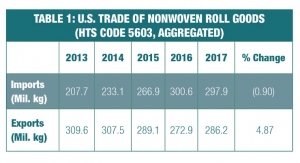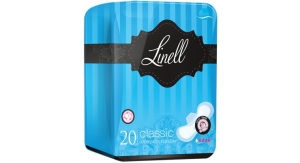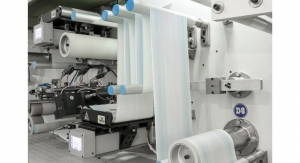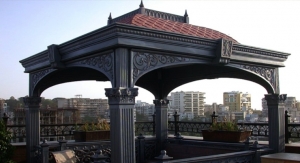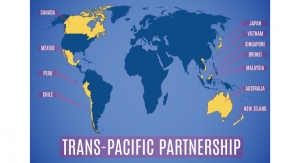Dawnee Giammittorio, Associate Director at The Franken Group, LLC08.09.18
More than two years ago, Congress passed legislation that overhauled the Miscellaneous Tariff Bill (MTB) process, formalizing it to create a more transparency and consistency. That bipartisan bill, the American Manufacturing Competitiveness Act of 2016, addressed many concerns of critics and requires interested parties to initiate the MTB process by submitting a petition to the International Trade Commission (ITC) through an online portal rather than by a request to the office of an individual congressional member. At the time of writing, the first bill to undergo this rigorous new process sits stalled in the Senate.
For three decades, Congress supported U.S. manufacturing by suspending or reducing import taxes on necessary manufacturing inputs that are not available domestically or in sufficient quantity and therefore, must be imported from other countries. By reducing or eliminating the tariff, the American manufacturer is able to avoid paying a higher cost on inputs than was paid by a foreign manufacturer to make a competitive finished product. Supporters contend that the MTB boosts the global competitiveness of American manufacturers by cutting production costs in the U.S., without harming other domestic producers.
The previous process was less formal and often depended on a relationship with a member of Congress who would shepherd or sponsor the request for duty relief. To receive a waiver, companies and industry groups submitted requests to one of their members of Congress, who sent them to the ITC staff for review. Commission staff then vetted the various requests to confirm the duty suspensions or reductions met three key criteria: (1) no competing domestic production existed; (2) the tariff revenue relinquished by the U.S. did not exceed $500,000 and 3) must be capable of being administered by U.S. Customs and Border Patrol (CBP). After the ITC review, the verified requests were packaged in an omnibus MTB for congressional approval and were typically effective for three years.
For the domestic nonwovens industry, the MTB has become increasingly important. Since the 2005 closure of Liberty Fibers, the last remaining domestic producer of rayon, American companies have benefited from MTB duty relief on imported viscose rayon staple fibers. In fact, during the last MTB process initiated in October 2016, companies submitted 19 petitions seeking relief for viscose rayon staples fibers.
For many years, Congress routinely passed omnibus MTBs, and until 2010, the MTB easily passed through Congress receiving strong bipartisan and bicameral support. In fact, the House passed the 2010 MTB, the U.S. Manufacturing Enhancement Act (H.R. 4380), by a vote of 378–43, and the Senate by unanimous consent. This MTB package was estimated to support 90,000 domestic manufacturing jobs, increase U.S. production by $4.6 billion and expand U.S. GDP by $3.5 billion.
After House Republicans campaigned on and adopted a ban on earmarks in 2010, some lawmakers were concerned that the MTB process could be likened to earmarks. When MTB benefits were set to lapse at the end of 2012, the long-established process became embroiled in the controversy over earmarks. Proponents of the MTB argued that the benefits were available to all importers up to the $500,000 limit, so were not special favors to constituents, and therefore not earmarks. Even the same House Republicans, who had campaigned on banning earmarks in 2010, agreed that the MTB was not one. Negative media attention and a bill sponsored by former Sen. Jim DeMint (R-SC) to revamp the process, however, persuaded Senate Republicans and some Democrats to sit out the process that year and left many companies scrambling to find sponsors for their petitions. As a result, Congress went through the petition process but never moved the MTB forward and allowed the benefits to expire on December 31, 2012 and remain lapsed for years. The National Association of Manufacturers (NAM) estimated that the lapsed duties cost businesses almost $750 million a year.
In 2016, Congress finally enacted legislation overhauling the MTB process to address the earmark concerns. The reform law gave the ITC and the Department of Commerce responsibility for vetting petitions and as opposed to individual members of Congress. Under the reform law, the petitions are primarily vetted to determine whether: (1) there is any opposition from an American producer or member of Congress; and (2) the total estimated revenue loss for each reduction or suspension be at or less than $500,000. The law sets out a complicated set of deadlines for notices, petition submission, public comments, preliminary reports and final reports, many of which are submitted and viewable on an ITC website portal. The process takes at least 10 months from the time the petition process is launched until the ITC issues its final report. After Congress receives the report, it must then write and pass the MTB legislation.
The ITC accepted almost 2600 petitions during the period from Oct. 14 to Dec. 12, 2016, including, as mentioned above, nineteen for viscose rayon staple fibers. In August, the ITC sent its final report to Congress with recommendations for duty suspensions and reductions. In November 2017, the Miscellaneous Tariff Act (H.B. 4318 and S. 2108) was introduced in Congress and contained ten provisions for viscose rayon staple fibers.
The House passed the MTB unanimously on January 16, and the bill has languished in the Senate ever since. Recently the Senate has been trying to “hotline” the MTB, a process that leadership can use to move a bill quickly, under unanimous consent, as long as there are no objections during the hotline process. Just before the July 4 recess, the hotline process failed due to unexpected and unexplained “holds” or objections by two Republican Senators.
Although the resident has been especially vocal on trade issues, emphasizing domestic manufacturing and chastising companies that move manufacturing abroad, his administration has not commented publicly on the MTB. One could reasonably expect the President to favor the MTB--lowering tariffs to benefit American manufacturers, leveling the playing field so that they can compete, and allowing them to obtain inputs not available domestically. However, the President’s trade agenda emphasizes domestic manufacturing, and he has not hesitated to impose tariffs to support his agenda.
While the intent of the MTB has remained the same, in practice, the impact has changed. Critics argue that what began as a targeted way to help U.S. manufacturers has transformed in recent years into sprawling packages of tariff reductions that weaken domestic producers by including finished goods. ProPublica estimates 750, and the NAM estimates 400, of the 1662 products in the current bill are finished goods. For comparison, the 2004 MTB contained fewer than 40 finished goods. Opponents of the MTB argue including finished goods benefits retailers and importers not manufacturers, and therefore undermines the intent of Congress. Supporters counter that the tariff waivers help companies stay in business, allowing them to maintain some American manufacturing, and benefits consumers. With stakeholders on one side arguing that American manufacturers benefit from the inclusion, and on the other from the exclusion, of finished goods in the MTB, until the President himself weighs in, it is impossible to predict his position.
Further complicating any progress of the MTB or its application if the Senate does eventually move it forward, are the ongoing “trade wars” in which the U.S. is currently engaged. President Trump has targeted thousands of Chinese products for additional tariffs due to perceived trade violations. It is safe to assume there is overlap between items on the target lists and those in the MTB. Because the fate of the MTB is uncertain, companies should be sure to monitor opportunities to comment on the tariff target lists and apply for exclusions when the chance arises.
Whatever the reason for the hold-up of the MTB in the Senate, Congress spent four years overhauling the process to make it transparent and fair. The ITC and Commerce spent 10 months thoroughly vetting thousands of petitions and reviewing comments, and now a bill unanimously passed by the House still awaits a vote in the Senate. The NAM estimates that, since the beginning of 2018, companies have paid almost $1 million a day in tariffs on inputs not available in the U.S. The overhaul may have made the petition process more transparent, but as to how and when Congress will actually pass the MTB, is still as opaque as ever.
For three decades, Congress supported U.S. manufacturing by suspending or reducing import taxes on necessary manufacturing inputs that are not available domestically or in sufficient quantity and therefore, must be imported from other countries. By reducing or eliminating the tariff, the American manufacturer is able to avoid paying a higher cost on inputs than was paid by a foreign manufacturer to make a competitive finished product. Supporters contend that the MTB boosts the global competitiveness of American manufacturers by cutting production costs in the U.S., without harming other domestic producers.
The previous process was less formal and often depended on a relationship with a member of Congress who would shepherd or sponsor the request for duty relief. To receive a waiver, companies and industry groups submitted requests to one of their members of Congress, who sent them to the ITC staff for review. Commission staff then vetted the various requests to confirm the duty suspensions or reductions met three key criteria: (1) no competing domestic production existed; (2) the tariff revenue relinquished by the U.S. did not exceed $500,000 and 3) must be capable of being administered by U.S. Customs and Border Patrol (CBP). After the ITC review, the verified requests were packaged in an omnibus MTB for congressional approval and were typically effective for three years.
For the domestic nonwovens industry, the MTB has become increasingly important. Since the 2005 closure of Liberty Fibers, the last remaining domestic producer of rayon, American companies have benefited from MTB duty relief on imported viscose rayon staple fibers. In fact, during the last MTB process initiated in October 2016, companies submitted 19 petitions seeking relief for viscose rayon staples fibers.
For many years, Congress routinely passed omnibus MTBs, and until 2010, the MTB easily passed through Congress receiving strong bipartisan and bicameral support. In fact, the House passed the 2010 MTB, the U.S. Manufacturing Enhancement Act (H.R. 4380), by a vote of 378–43, and the Senate by unanimous consent. This MTB package was estimated to support 90,000 domestic manufacturing jobs, increase U.S. production by $4.6 billion and expand U.S. GDP by $3.5 billion.
After House Republicans campaigned on and adopted a ban on earmarks in 2010, some lawmakers were concerned that the MTB process could be likened to earmarks. When MTB benefits were set to lapse at the end of 2012, the long-established process became embroiled in the controversy over earmarks. Proponents of the MTB argued that the benefits were available to all importers up to the $500,000 limit, so were not special favors to constituents, and therefore not earmarks. Even the same House Republicans, who had campaigned on banning earmarks in 2010, agreed that the MTB was not one. Negative media attention and a bill sponsored by former Sen. Jim DeMint (R-SC) to revamp the process, however, persuaded Senate Republicans and some Democrats to sit out the process that year and left many companies scrambling to find sponsors for their petitions. As a result, Congress went through the petition process but never moved the MTB forward and allowed the benefits to expire on December 31, 2012 and remain lapsed for years. The National Association of Manufacturers (NAM) estimated that the lapsed duties cost businesses almost $750 million a year.
In 2016, Congress finally enacted legislation overhauling the MTB process to address the earmark concerns. The reform law gave the ITC and the Department of Commerce responsibility for vetting petitions and as opposed to individual members of Congress. Under the reform law, the petitions are primarily vetted to determine whether: (1) there is any opposition from an American producer or member of Congress; and (2) the total estimated revenue loss for each reduction or suspension be at or less than $500,000. The law sets out a complicated set of deadlines for notices, petition submission, public comments, preliminary reports and final reports, many of which are submitted and viewable on an ITC website portal. The process takes at least 10 months from the time the petition process is launched until the ITC issues its final report. After Congress receives the report, it must then write and pass the MTB legislation.
The ITC accepted almost 2600 petitions during the period from Oct. 14 to Dec. 12, 2016, including, as mentioned above, nineteen for viscose rayon staple fibers. In August, the ITC sent its final report to Congress with recommendations for duty suspensions and reductions. In November 2017, the Miscellaneous Tariff Act (H.B. 4318 and S. 2108) was introduced in Congress and contained ten provisions for viscose rayon staple fibers.
The House passed the MTB unanimously on January 16, and the bill has languished in the Senate ever since. Recently the Senate has been trying to “hotline” the MTB, a process that leadership can use to move a bill quickly, under unanimous consent, as long as there are no objections during the hotline process. Just before the July 4 recess, the hotline process failed due to unexpected and unexplained “holds” or objections by two Republican Senators.
Although the resident has been especially vocal on trade issues, emphasizing domestic manufacturing and chastising companies that move manufacturing abroad, his administration has not commented publicly on the MTB. One could reasonably expect the President to favor the MTB--lowering tariffs to benefit American manufacturers, leveling the playing field so that they can compete, and allowing them to obtain inputs not available domestically. However, the President’s trade agenda emphasizes domestic manufacturing, and he has not hesitated to impose tariffs to support his agenda.
While the intent of the MTB has remained the same, in practice, the impact has changed. Critics argue that what began as a targeted way to help U.S. manufacturers has transformed in recent years into sprawling packages of tariff reductions that weaken domestic producers by including finished goods. ProPublica estimates 750, and the NAM estimates 400, of the 1662 products in the current bill are finished goods. For comparison, the 2004 MTB contained fewer than 40 finished goods. Opponents of the MTB argue including finished goods benefits retailers and importers not manufacturers, and therefore undermines the intent of Congress. Supporters counter that the tariff waivers help companies stay in business, allowing them to maintain some American manufacturing, and benefits consumers. With stakeholders on one side arguing that American manufacturers benefit from the inclusion, and on the other from the exclusion, of finished goods in the MTB, until the President himself weighs in, it is impossible to predict his position.
Further complicating any progress of the MTB or its application if the Senate does eventually move it forward, are the ongoing “trade wars” in which the U.S. is currently engaged. President Trump has targeted thousands of Chinese products for additional tariffs due to perceived trade violations. It is safe to assume there is overlap between items on the target lists and those in the MTB. Because the fate of the MTB is uncertain, companies should be sure to monitor opportunities to comment on the tariff target lists and apply for exclusions when the chance arises.
Whatever the reason for the hold-up of the MTB in the Senate, Congress spent four years overhauling the process to make it transparent and fair. The ITC and Commerce spent 10 months thoroughly vetting thousands of petitions and reviewing comments, and now a bill unanimously passed by the House still awaits a vote in the Senate. The NAM estimates that, since the beginning of 2018, companies have paid almost $1 million a day in tariffs on inputs not available in the U.S. The overhaul may have made the petition process more transparent, but as to how and when Congress will actually pass the MTB, is still as opaque as ever.



